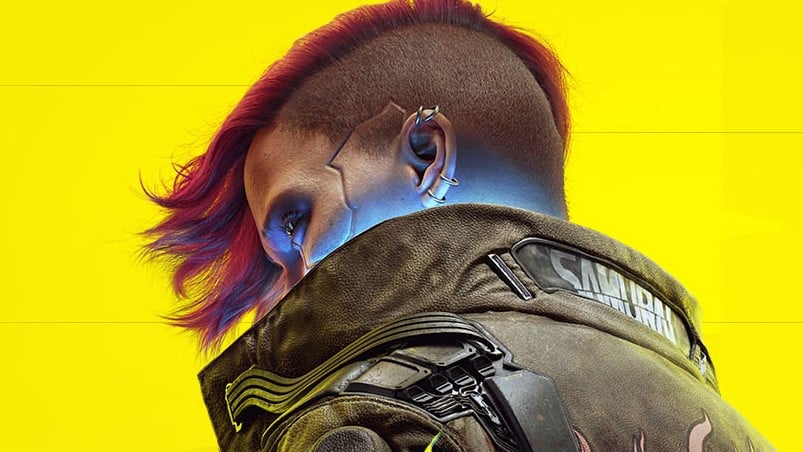My greatest fear as a child was the certainty that I would one day die. End of the road, done and dusted, dead and gone. It wasn’t my greatest fear most of the time, of course – that was typically reserved for some combination of the dark, strangers, or that one episode of Doctor Who with the kid who wore a gas mask and called for his mummy.
But it would creep up on me at night, slowly and then all at once. When it inevitably hit, I would cry and call for my parents to comfort me – which I bet they appreciated, because eternity is a pretty terrifying concept at the best of times, even for adults. Eventually, I learned how to manage it enough that I could put it in a little box in my mind, out of sight. But it is still there, lurking like some kind of Chekov’s existential dread, a secret tool to torment me later.
People say that the only two certainties in life are death and taxes, but while billionaires have been proving the latter wrong for quite some time now, even they haven’t cracked the former, yet. Death is the ultimate shared experience, something we all have to think about and deal with eventually. It’s the catalyst for a bundle of scary questions – why do we die? What happens next? Why do we live in the first place?
When we’re confronted with questions we don’t know how to answer, we do the thing that humans do best: tell stories about it, to search for meaning. I’ve sought my own answers in all kinds of stories over the years, but recently I found one that felt right. With the question of why I’m alive and whether my life has meaning, I took my answer from the dystopian worlds of Cyberpunk 2077 and Citizen Sleeper.
Cyberpunk 2077
Spoilers for Cyberpunk 2077 follow past this point
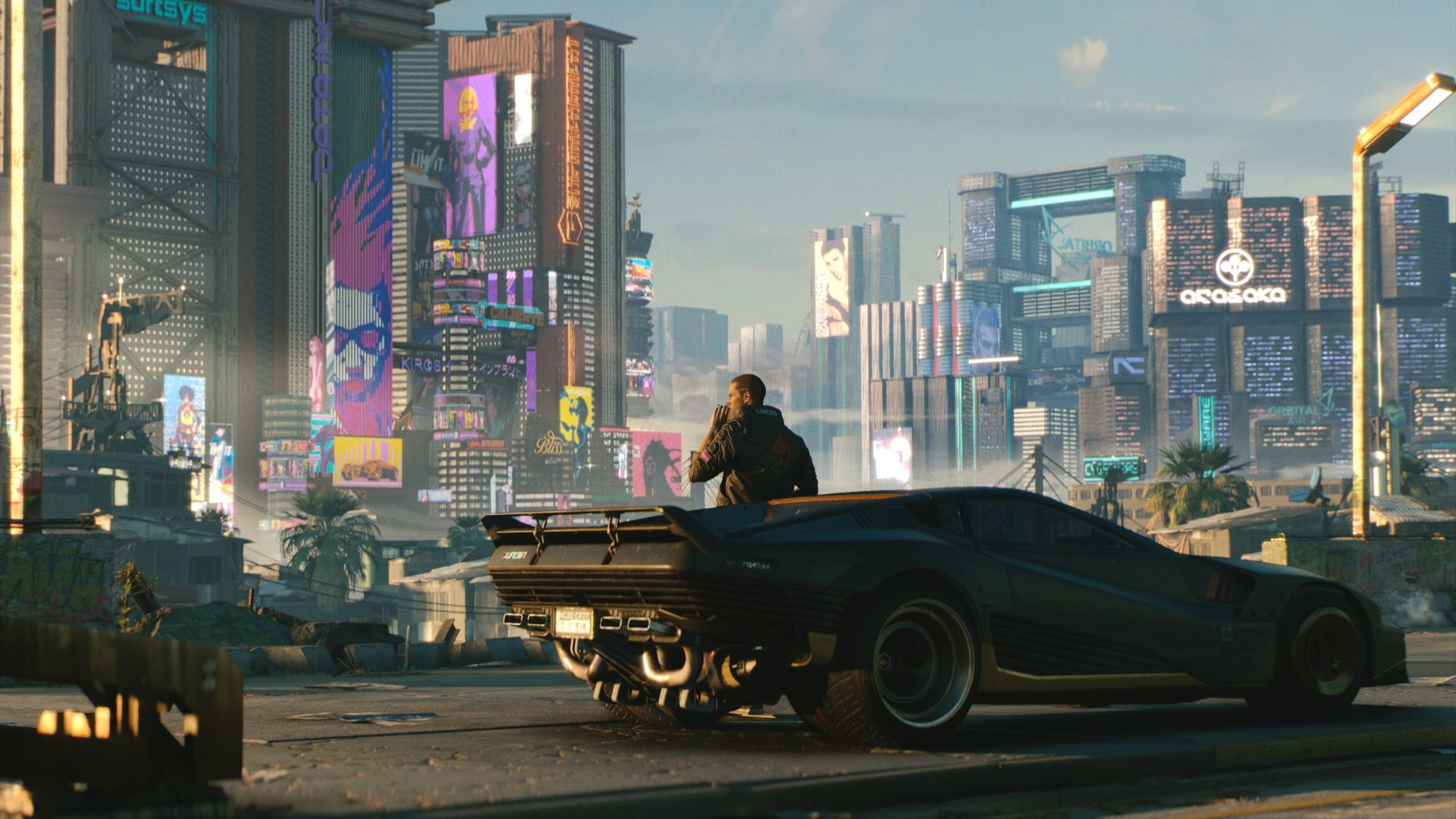
Cyberpunk is a transhumanist dystopia, a setting in which technological innovation has become so deeply interwoven with capitalist greed that the two are nigh inseparable – a feedback loop driving each other to greater depths of moral depravity in the name of progress and profit. The environment is irreversibly damaged, the divides of class and wealth have grown into chasms, and human necessities like housing, sustenance and healthcare are held just out of reach for many unless they funnel their existence into ill-rewarding labour… but any similarity to real societies or cultures are purely coincidental, of course.
In Cyberpunk 2077, life is presented as deeply nihilistic – regular people are little more than fodder, spent to fuel the machine of progress and line the pockets of the wealthy. Even the outliers (protagonists like V and David Martinez) are rare exceptions that prove the rule, doomed to die with their dreams and ambitions largely unfulfilled.
At a first glance, this hardly seems like an appropriate setting from which to draw a healthy conclusion about the meaning of life, but Cyberpunk 2077 doesn’t wallow in hopelessness or grief when it comes to the fate of its characters and setting. Instead, it presents one of dystopian fiction’s greatest strengths – small-scale bonds and connection in defiance of a cruel world.
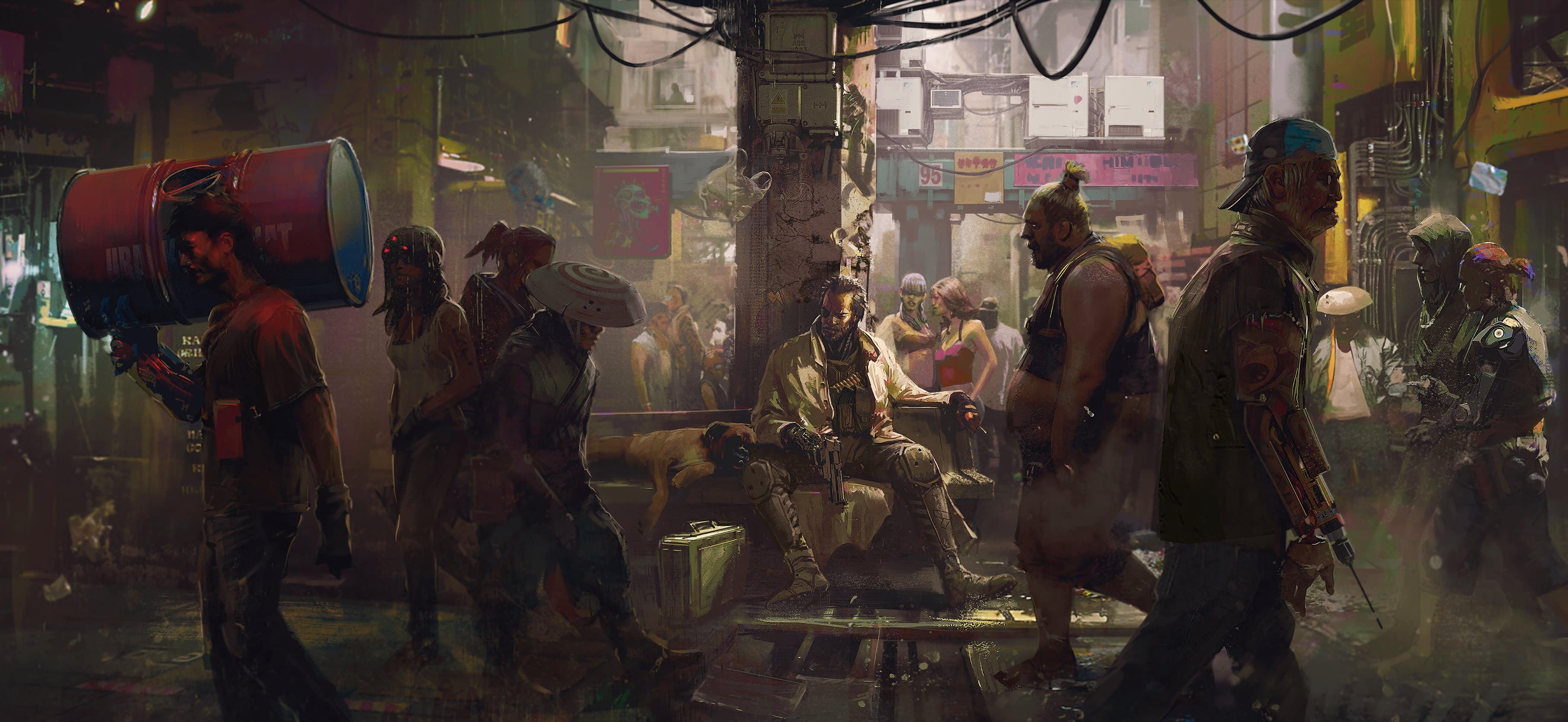
Good dystopian fiction is rarely just a grim cautionary tale, or a birds-eye view of a suffering world. It takes a narrower scope, delving into the lives of the people in those societies, so that the audience can see how those characters despair or persevere – how they fail or are broken down, and how they cope with their circumstances.
In Cyberpunk 2077, V is desperately trying to save herself from her impending demise, brought on by nothing more than bad luck. But even while tearing a path of destruction through Night City and going toe-to-toe with its biggest names, the stakes are never societal for her. They’re deeply personal. Under the pervasive gloom of the dystopian setting, V’s story isn’t about changing the world, she’s just making friends and finding allies who can help her save her life.
And in the end, she fails. Her death (whether physical or mental) is certain, and none of her efforts could prevent it. But as the credits roll, we see video messages from the people V met through her efforts, all the bonds she formed and friends she made. Even though she was doomed from the start, the things she did mattered to this small group of people, who have grown deeply invested in her story.
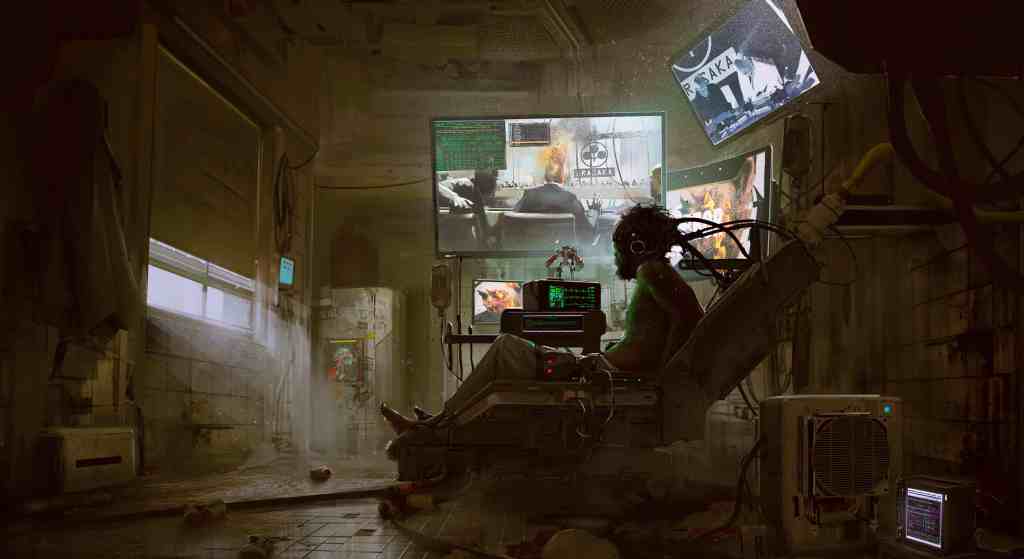
Cyberpunk 2077 is nihilistic, but it’s an optimistic nihilism – there’s no grand plan or inherent meaning to life, but that means the freedom to find meaning on your own terms. V dies, but she gave her life meaning through the friends she forged.
Citizen Sleeper
This idea of complete freedom from an inherent meaning or purpose to life is fully realised in Citizen Sleeper, another transhumanist dystopia. The protagonist is a ‘Sleeper’, a biosynthetic robot whose consciousness is built from a scanned copy of a human’s mind. Sleepers are considered to be corporate property – without human rights or legal recognition of personhood – and a form of planned obsolescence ensures that if a Sleeper attempts to flee and gain freedom, they will break down and die over a matter of weeks.
Read: On Citizen Sleeper and precarious survival in a capitalist world
The Sleeper’s existence is the most fundamental form of nihilism – specifically created as an object rather than a living being, their life (or consciousness) doesn’t just lack meaning; it’s actively considered surplus to requirement. Despite this, they are alive, and with life comes both the desire to keep living, and to meaningfully exist. Faced with the same impending demise as V, the Sleeper strives to circumvent their fate through the same process of forming bonds and making friends.
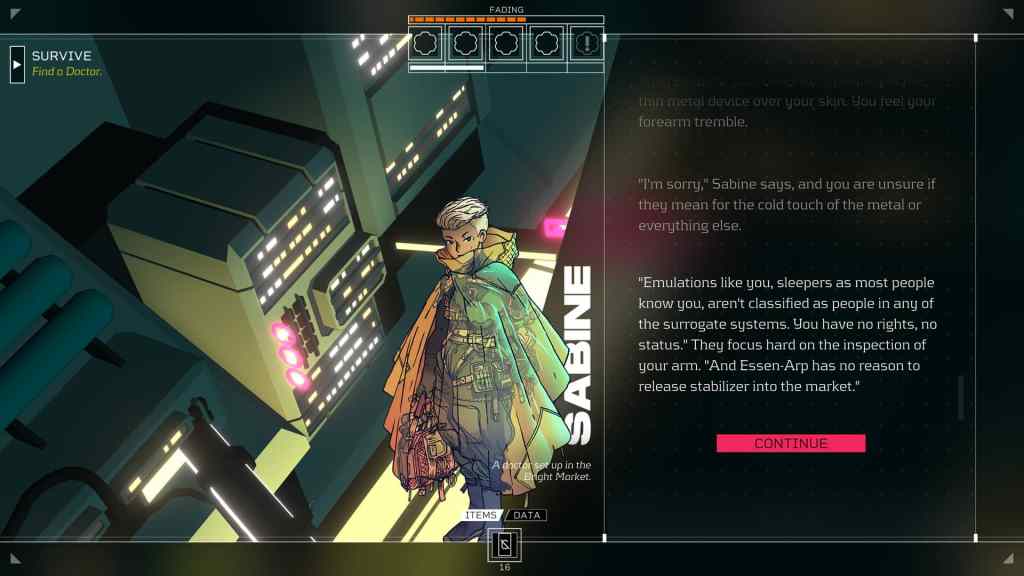
As they interact with other inhabitants of the Eye, their struggle to survive becomes the freedom to define their personhood, whether that journey leads them to integrate into the society of the space station, find passage on a colony ship to distant horizons, or become part of a vast AI mycelial network.
They can even manage to succeed where V was doomed to fail, overcoming their destined death. Through optimistic nihilism, the Sleeper’s lack of inherent meaning or purpose becomes the freedom to define themselves as they see fit.
I might not have an answer to what comes after death, but I’m pretty comfortable with my stance on the meaning of life. Dystopian fiction (and dystopian reality, let’s be honest) has made me an optimistic nihilist. I may not exist for any specific purpose, but that just means I can decide what I want to do.
A ‘true’ meaning of life isn’t out there, but I like to think my friends would leave some lovely video messages when my credits roll, and that’s all I really need. So if you’re paralysed with existential dread due to the concept of your own mortality, and uncertainty of your place in the world, do what I do: Play video games and become a nihilist!
…and go to therapy. The dedicated upkeep of your mental health is important.
